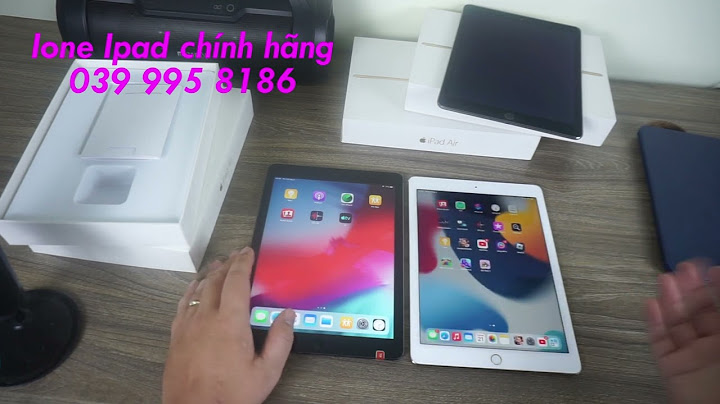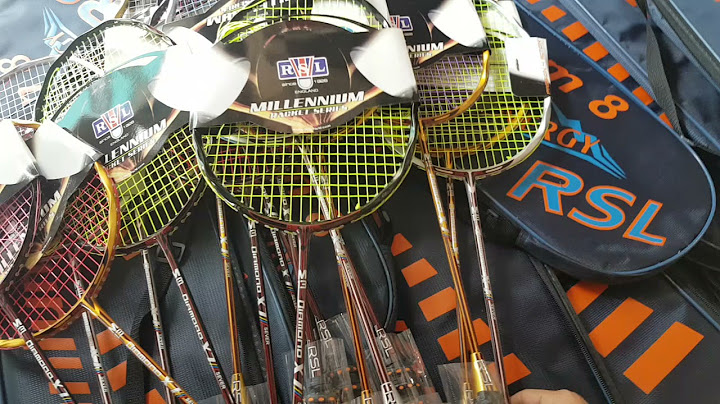COMPARISON SELECTION (3 selected items max.) VIEW COMPARISON ADD MORE Show Canon EOS 700D  DXOMARK Sensor ScoresOverall Score 61 Portrait (Color Depth) 21.7 bits Landscape (Dynamic Range) 11.2 Evs Sports (Low-Light ISO) 681 ISO Canon EOS 7D Mark II  DXOMARK Sensor ScoresOverall Score 70 Portrait (Color Depth) 22.4 bits Landscape (Dynamic Range) 11.8 Evs Sports (Low-Light ISO) 1082 ISO The Canon EOS 700D (called Canon T5i in some regions) and the Canon EOS 7D Mark II are two digital cameras that were officially introduced, respectively, in March 2013 and September 2014. Both are DSLR (Digital Single Lens Reflex) cameras that are equipped with an APS-C sensor. The 700D has a resolution of 17.9 megapixels, whereas the 7D Mark II provides 20 MP. Below is an overview of the main specs of the two cameras as a starting point for the comparison.   Going beyond this snapshot of core features and characteristics, what are the differences between the Canon EOS 700D and the Canon EOS 7D Mark II? Which one should you buy? Read on to find out how these two cameras compare with respect to their body size, their imaging sensors, their shooting features, their input-output connections, and their reception by expert reviewers.
Body comparisonAn illustration of the physical size and weight of the Canon 700D and the Canon 7D II is provided in the side-by-side display below. The two cameras are presented according to their relative size. Three successive views from the front, the top, and the rear are shown. All width, height and depth measures are rounded to the nearest millimeter.    If the front view area (width x height) of the cameras is taken as an aggregate measure of their size, the Canon 7D II is notably larger (25 percent) than the Canon 700D. Moreover, the 7D Mark II is substantially heavier (57 percent) than the 700D. It is noteworthy in this context that the 7D Mark II is splash and dust-proof, while the 700D does not feature any corresponding weather-sealing. The above size and weight comparisons are to some extent incomplete since they do not consider the interchangeable lenses that both of these cameras require. In this particular case, both cameras feature the same lens mount, so that they can use the same lenses. You can compare the optics available in the Canon EF Lens Catalog. Concerning battery life, the 700D gets 440 shots out of its LP-E8 battery, while the 7D Mark II can take 670 images on a single charge of its LP-E6N power pack. The table below summarizes the key physical specs of the two cameras alongside a broader set of comparators. In case you want to display and compare another camera duo, you can use the CAM-parator app to select your camera combination among a large number of options. Any camera decision will naturally be influenced heavily by the price. The retail prices at the time of the camera’s release place the model in the market relative to other models in the producer’s line-up and the competition. The 700D was launched at a markedly lower price (by 64 percent) than the 7D Mark II, which puts it into a different market segment. Usually, retail prices stay at first close to the launch price, but after several months, discounts become available. Later in the product cycle and, in particular, when the replacement model is about to appear, further discounting and stock clearance sales often push the camera price considerably down.
Sensor comparisonThe imaging sensor is at the core of digital cameras and its size is one of the main determining factors of image quality. A large sensor will tend to have larger individual pixels that provide better low-light sensitivity, wider , and richer than smaller pixel-units in a sensor of the same technological generation. Further, a large sensor camera will give the photographer additional creative options when using shallow to isolate a subject from its background. On the downside, larger sensors tend to be associated with larger, more expensive camera bodies and lenses. Both cameras under consideration feature an APS-C sensor, but their sensors differ slightly in size. The sensor area in the 7D Mark II is 1 percent bigger. They nevertheless have the same format factor of 1.6. Both cameras have a native aspect ratio (sensor width to sensor height) of 3:2.  With 20MP, the 7D Mark II offers a higher resolution than the 700D (17.9MP), but the 7D Mark II has smaller individual pixels ( of 4.10μm versus 4.31μm for the 700D). Yet, the 7D Mark II is a somewhat more recent model (by 1 year and 5 months) than the 700D, and its sensor might have benefitted from technological advances during this time that enhance the light gathering capacity of its pixel-units. The resolution advantage of the Canon 7D II implies greater flexibility for cropping images or the possibility to print larger pictures. The maximum print size of the 7D Mark II for good quality output (200 dots per inch) amounts to 27.4 x 18.2 inches or 69.5 x 46.3 cm, for very good quality (250 dpi) 21.9 x 14.6 inches or 55.6 x 37.1 cm, and for excellent quality (300 dpi) 18.2 x 12.2 inches or 46.3 x 30.9 cm. The corresponding values for the Canon 700D are 25.9 x 17.3 inches or 65.8 x 43.9 cm for good quality, 20.7 x 13.8 inches or 52.7 x 35.1 cm for very good quality, and 17.3 x 11.5 inches or 43.9 x 29.3 cm for excellent quality prints. The Canon EOS 700D has a native sensitivity range from ISO 100 to ISO 12800, which can be extended to ISO 100-25600. The corresponding ISO settings for the Canon EOS 7D Mark II are ISO 100 to ISO 16000, with the possibility to increase the ISO range to 100-51200. Technology-wise, both cameras are equipped with CMOS (Complementary Metal–Oxide–Semiconductor) sensors. Both cameras use a Bayer filter for capturing RGB colors on a square grid of photosensors. This arrangement is found in most digital cameras.  Consistent information on actual sensor performance is available from DXO Mark for many cameras. This service assesses and scores the color depth ("DXO Portrait"), dynamic range ("DXO Landscape"), and low-light sensitivity ("DXO Sports") of camera sensors, and also publishes an overall camera score. Of the two cameras under consideration, the 7D Mark II has a markedly higher DXO score than the 700D (overall score 9 points higher), which will translate into better image quality. The advantage is based on 0.7 bits higher color depth, 0.6 EV in additional dynamic range, and 0.7 stops in additional low light sensitivity. The adjacent table reports on the physical sensor characteristics and the outcomes of the DXO sensor quality tests for a sample of comparator-cameras.  Sensor Characteristics # Camera Model Sensor Class Resolution (MP) Horiz. Pixels Vert. Pixels Video Format DXO Portrait DXO Landscape DXO Sports DXO Overall 1. Canon 700D APS-C 17.9 5184 34561080/30p21.711.2681612. Canon 7D II APS-C 20.0 5472 36481080/60p22.411.81082703. Canon 80D APS-C 24.0 6000 40001080/60p23.613.21135794. Canon 750D APS-C 24.0 6000 40001080/30p22.712.0919715. Canon 760D APS-C 24.0 6000 40001080/30p22.612.0915706. Canon 1200D APS-C 17.9 5184 34561080/30p21.911.3724637. Canon G7 X 1-inch 20.0 5472 36481080/60p23.012.7556718. Canon 70D APS-C 20.0 5472 36481080/30p22.511.6926689. Canon 100D APS-C 17.9 5184 34561080/30p21.811.38436310. Canon 6D Full Frame 20.0 5472 36481080/30p23.812.123408211. Canon 650D APS-C 17.9 5184 34561080/30p21.711.27226212. Canon M APS-C 17.9 5184 34561080/30p22.111.28276513. Canon 600D APS-C 17.9 5184 34561080/30p22.111.57936514. Canon 60D APS-C 17.9 5184 34561080/30p22.211.58136615. Canon 550D APS-C 17.9 5184 34561080/30p22.111.57846616. Canon 7D APS-C 17.9 5184 34561080/30p22.011.78546617. Canon 500D APS-C 15.1 4752 31681080/20p21.711.566363
Many modern cameras are not only capable of taking still images, but also of capturing video footage. The two cameras under consideration both have sensors whose read-out speed is fast enough to capture moving pictures, but the 7D Mark II provides a faster frame rate than the 700D. It can shoot movie footage at 1080/60p, while the 700D is limited to 1080/30p.
Feature comparisonBeyond body and sensor, cameras can and do differ across a range of features. The 700D and the 7D Mark II are similar in the sense that both have an optical viewfinder. The latter is useful for getting a clear image for framing even in brightly lit environments. The viewfinder in the 7D Mark II offers a wider field of view (100%) than the one in the 700D (95%), so that a larger proportion of the captured image is visible in the finder. In addition, the viewfinder of the 7D Mark II has a higher magnification (0.63x vs 0.53x), so that the size of the image transmitted appears closer to the size seen with the naked human eye. The table below summarizes some of the other core capabilities of the Canon 700D and Canon 7D II in connection with corresponding information for a sample of similar cameras.  Core Features # Camera Model Viewfinder (Type or 000 dots) Control Panel (yes/no) LCD Specifications (inch/000 dots) LCD Attach- ment Touch Screen (yes/no) Max Shutter Speed * Max Shutter Flaps * Built-in Flash (yes/no) Built-in Image Stab 1. Canon 700Doptical n3.0 / 1040 swivel Y 1/4000s 5.0/s Y n 2. Canon 7D IIoptical Y3.0 / 1040 fixed n 1/8000s 10.0/s Y n 3. Canon 80Doptical Y3.0 / 1040 swivel Y 1/8000s 7.0/s Y n 4. Canon 750Doptical n3.0 / 1040 swivel Y 1/4000s 5.0/s Y n 5. Canon 760Doptical Y3.0 / 1040 swivel Y 1/4000s 5.0/s Y n 6. Canon 1200Doptical n3.0 / 460 fixed n 1/4000s 3.0/s Y n 7. Canon G7 Xnone n3.0 / 1040 tilting Y 1/2000s 6.5/s Y Y 8. Canon 70Doptical Y3.0 / 1040 swivel Y 1/8000s 7.0/s Y n 9. Canon 100Doptical n3.0 / 1040 fixed Y 1/4000s 4.9/s Y n 10. Canon 6Doptical Y3.0 / 1040 fixed n 1/4000s 4.5/s n n 11. Canon 650Doptical n3.0 / 1040 swivel Y 1/4000s 5.0/s Y n 12. Canon Mnone n3.0 / 1040 fixed Y 1/4000s 4.3/s n n 13. Canon 600Doptical n3.0 / 1040 swivel n 1/4000s 3.7/s Y n 14. Canon 60Doptical Y3.0 / 1040 swivel n 1/8000s 5.3/s Y n 15. Canon 550Doptical n3.0 / 1040 fixed n 1/4000s 3.7/s Y n 16. Canon 7Doptical Y3.0 / 920 fixed n 1/8000s 8.0/s Y n 17. Canon 500Doptical n3.0 / 920 fixed n 1/4000s 3.4/s Y n Note: *) Information refers to the mechanical shutter, unless the camera only has an electronic one.
One differentiating feature between the two cameras concerns the touch sensitivity of the rear screen. The 700D has a touchscreen, while the 7D Mark II has a conventional panel. Touch control can be particularly helpful, for example, for setting the focus point. The 700D has an articulated LCD that can be turned to be front-facing. This characteristic will be appreciated by vloggers and photographers who are interested in snapping selfies. In contrast, the 7D Mark II does not have a selfie-screen. The Canon 7D II has an intervalometer built-in. This enables the photographer to capture time lapse sequences, such as flower blooming, a sunset or moon rise, without purchasing an external camera trigger and related software. The 700D writes its imaging data to SDXC cards, while the 7D Mark II uses Compact Flash or SDXC cards. The 7D Mark II features dual card slots, which can be very useful in case a memory card fails. In contrast, the 700D only has one slot. Both cameras can use UHS-I cards, which provide for Ultra High Speed data transfer of up to 104 MB/s.
Connectivity comparisonFor some imaging applications, the extent to which a camera can communicate with its environment can be an important aspect in the camera decision process. The table below provides an overview of the connectivity of the Canon EOS 700D and Canon EOS 7D Mark II and, in particular, the interfaces the cameras (and selected comparators) provide for accessory control and data transfer.  Input-Output Connections # Camera Model Hotshoe Port Internal Mic / Speaker Microphone Port Headphone Port HDMI Port USB Port WiFi Support NFC Support Bluetooth Support 1. Canon 700DYstereo / monoY-mini2.0- 2. Canon 7D IIYstereo / monoYYmini3.0- 3. Canon 80DYstereo / monoYYmini2.0YY- 4. Canon 750DYstereo / monoY-mini2.0YY- 5. Canon 760DYstereo / monoY-mini2.0YY- 6. Canon 1200DYmono / mono--mini2.0- 7. Canon G7 X-stereo / mono--micro2.0YY- 8. Canon 70DYstereo / monoY-mini2.0Y 9. Canon 100DYmono / monoY-mini2.0- 10. Canon 6DYmono / monoY-mini2.0Y 11. Canon 650DYstereo / monoY-mini2.0- 12. Canon MYstereo / monoY-mini2.0- 13. Canon 600DYmono / monoY-mini2.0- 14. Canon 60DYmono / monoY-mini2.0- 15. Canon 550DYstereo / -Y-mini2.0- 16. Canon 7DYmono / -Y-mini2.0- 17. Canon 500DYmono / mono--mini2.0---
It is notable that the 7D Mark II has a headphone jack, which makes it possible to attach external headphones and monitor the quality of sound during the recording process. The 700D lacks such a headphone port. Studio photographers will appreciate that the Canon 7D II (unlike the 700D) features a PC Sync socket, so that professional strobe lights can be controlled by the camera. Travel and landscape photographers will find it useful that the 7D Mark II has an internal geolocalization sensor and can record GPS coordinates in its EXIF data. Both the 700D and the 7D Mark II have been discontinued, but can regularly be found used on ebay. The 700D was replaced by the Canon 750D, while the 7D Mark II does not have a direct successor. Further information on the features and operation of the 700D and 7D Mark II can be found, respectively, in the Canon 700D Manual (free pdf) or the online Canon 7D II Manual.
Review summarySo what conclusions can be drawn? Is the Canon 700D better than the Canon 7D II or vice versa? Below is a summary of the relative strengths of each of the two contestants. Advantages of the Canon EOS 700D:
Reasons to prefer the Canon EOS 7D Mark II:
If the count of individual advantages (bullet points above) is taken as a guide, the 7D Mark II is the clear winner of the contest (19 : 7 points). However, the pertinence of the various camera strengths will differ across photographers, so that you might want to weigh individual camera traits according to their importance for your own imaging needs before making a camera decision. A professional wedding photographer will view the differences between cameras in a way that diverges from the perspective of a travel photog, and a person interested in cityscapes has distinct needs from a macro shooter. Hence, the decision which camera is best and worth buying is often a very personal one. 700D 07:19 7D Mark II How about other alternatives? Do the specifications of the Canon 700D and the Canon 7D II place the cameras among the top in their class? Find out in the latest Best DSLR Camera listing whether the two cameras rank among the cream of the crop. In any case, while the specs-based evaluation of cameras can be instructive in revealing their potential as photographic tools, it says little about, for example, the shooting experience and imaging performance of the 700D and the 7D Mark II in practical situations. User reviews, such as those found at amazon, can sometimes inform about these issues, but such feedback is often incomplete, inconsistent, and biased. Expert reviewsThis is why hands-on reviews by experts are important. The table below provides a synthesis of the camera assessments of some of the best known photo-gear review sites (amateurphotographer [AP], cameralabs [CL], digitalcameraworld [DCW], dpreview [DPR], ephotozine [EPZ], photographyblog [PB]). As can be seen, the professional reviewers agree in many cases on the quality of different cameras, but sometimes their assessments diverge, reinforcing the earlier point that a camera decision is often a very personal choice. Care should be taken when interpreting the review scores above, though. The ratings are only valid when referring to cameras in the same category and of the same age. Thus, a score needs to be put into the context of the launch date and the launch price of the camera, and comparing ratings of very distinct cameras or ones that are far apart in terms of their release date have little meaning. It should also be noted that some of the review sites have over time altered the way they render their verdicts.   Other camera comparisonsDid this review help to inform your camera decision process? In case you would like to check on the differences and similarities of other camera models, just use the search menu below. As an alternative, you can also directly jump to any one of the listed comparisons that were previously generated by the CAM-parator tool.
Specifications: Canon 700D vs Canon 7D IIBelow is a side-by-side comparison of the specs of the two cameras to facilitate a quick review of their differences and common features. |





















